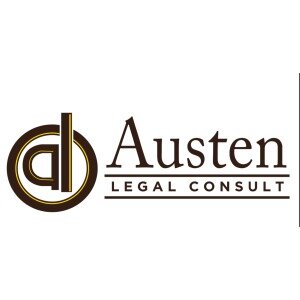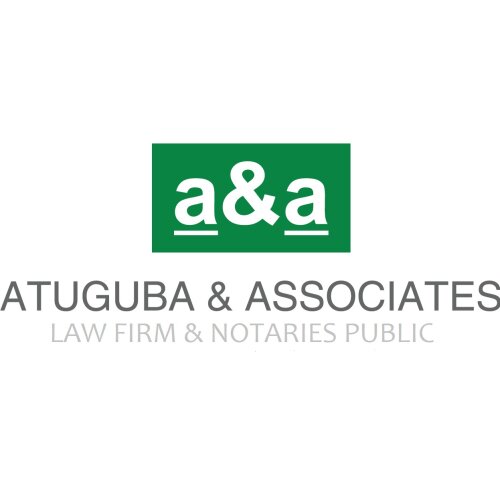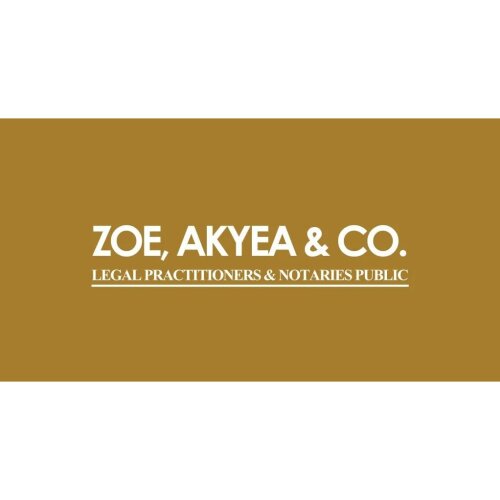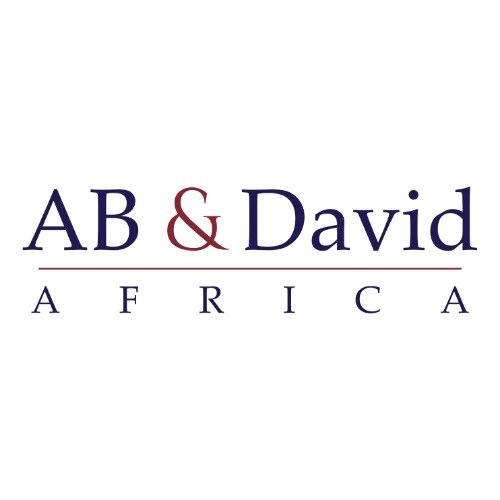Best Employment Benefits & Executive Compensation Lawyers in Ghana
Share your needs with us, get contacted by law firms.
Free. Takes 2 min.
Or refine your search by selecting a city:
List of the best lawyers in Ghana
About Employment Benefits & Executive Compensation Law in Ghana
Employment Benefits and Executive Compensation law in Ghana is designed to regulate the relationship between employers and their employees, particularly focusing on the benefits and compensations employees are entitled to. This area of law encompasses various types of compensation beyond the basic salary, such as bonuses, stock options, retirement plans, health benefits, and other perks provided to employees and executives. Ensuring compliance with these regulations is crucial for businesses to maintain fair labor practices and avoid potential disputes.
Why You May Need a Lawyer
There are several situations where individuals or businesses may require legal assistance regarding Employment Benefits and Executive Compensation in Ghana:
- Negotiating employment contracts for executives or other employees.
- Understanding and ensuring compliance with local regulations on employee benefits.
- Addressing disputes over compensation, bonuses, or benefits.
- Structuring incentive plans or stock options in compliance with applicable laws.
- Managing transitions for retirement or staff layoffs, ensuring compliance with legal requirements.
- Handling disputes related to wrongful termination or unfair dismissal, which might involve compensation issues.
Local Laws Overview
Employment and compensation in Ghana are governed mainly by the Labour Act, 2003 (Act 651), along with other relevant laws and regulations. Key aspects include:
- Basic Employment Contracts: These must outline terms and conditions, including compensation and benefits, and comply with statutory minimums.
- Minimum Wage: Employers must adhere to the national minimum wage regulations, ensuring all employees receive at least this baseline pay.
- Pensions: The National Pensions Act, 2008 (Act 766) establishes mandatory pension schemes for employees, requiring contributions from both employers and employees.
- Leave Entitlements: Employees are entitled to specific types of leave, including annual, sick, and maternity leave, with corresponding benefits.
- Executive Compensation: While not extensively legislated, executive compensation packages must align with governance practices and internal company policies.
- Health and Safety: Employers are required to provide a safe working environment, with health benefits often forming part of the employment package.
Frequently Asked Questions
What is included in executive compensation in Ghana?
Executive compensation typically includes base salary, bonuses, stock options, retirement plans, health benefits, and additional perks such as housing or car allowances.
How are employee benefits regulated in Ghana?
Employee benefits in Ghana are regulated by the Labour Act and related laws, specifying mandatory benefits such as pensions and leave, alongside company-specific benefits outlined in employment contracts or collective bargaining agreements.
Can employers in Ghana change benefits without employee consent?
Generally, any change to employment terms, including benefits, requires mutual consent. Unilateral changes can lead to disputes or claims for breach of contract.
Is there a mandatory retirement age in Ghana?
The mandatory retirement age in Ghana's public sector is 60 years. However, private sector retirement ages can vary based on company policy and employment contract terms.
What legal recourse is available for disputes over benefits in Ghana?
Disputes over benefits can be resolved through mediation, arbitration, or litigation. It's advisable to seek legal counsel to navigate the appropriate process.
Are there specific laws on severance pay in Ghana?
Yes, the Labour Act provides guidelines on severance pay, particularly in cases of redundancy. Employers must follow statutory requirements when calculating and distributing severance packages.
How are bonuses taxed in Ghana?
Bonuses are considered part of taxable income and are subject to the same tax rates as other forms of income under Ghanaian tax laws.
What are the key considerations for stock option plans in Ghana?
Stock option plans must align with both company policy and regulatory requirements, ensuring clear communication of terms, performance criteria, and vesting schedules.
Do employees have a right to health insurance in Ghana?
While not mandatory by law for all sectors, many employers provide health insurance as part of compensation packages. It often improves employee satisfaction and productivity.
What happens to employee benefits when a company is sold?
In a merger or acquisition, employee benefits may be renegotiated. However, existing contracts should be honored unless mutually agreed otherwise between the new employer and employees.
Additional Resources
Individuals seeking further information or assistance on employment benefits and executive compensation in Ghana can consult the following resources:
- The Ministry of Employment and Labour Relations for policy guidance and statutory information.
- The National Labour Commission for dispute resolution services and legal clarifications.
- The Social Security and National Insurance Trust (SSNIT) for details on pension schemes.
- The Ghana Employers' Association for support on employer-related concerns.
- Labour unions and associations for collective bargaining and representation.
Next Steps
If you need legal assistance in Employment Benefits & Executive Compensation, consider the following steps:
- Identify and document the specific issue or concern you are experiencing in detail.
- Consult with legal professionals or law firms specializing in labor and employment law for tailored advice.
- Reach out to relevant organizations or governmental bodies for guidance and support.
- Explore negotiation or mediation to resolve disputes amicably, if applicable.
- Prepare and proceed with legal action if necessary, guided by your lawyer.
Lawzana helps you find the best lawyers and law firms in Ghana through a curated and pre-screened list of qualified legal professionals. Our platform offers rankings and detailed profiles of attorneys and law firms, allowing you to compare based on practice areas, including Employment Benefits & Executive Compensation, experience, and client feedback.
Each profile includes a description of the firm's areas of practice, client reviews, team members and partners, year of establishment, spoken languages, office locations, contact information, social media presence, and any published articles or resources. Most firms on our platform speak English and are experienced in both local and international legal matters.
Get a quote from top-rated law firms in Ghana — quickly, securely, and without unnecessary hassle.
Disclaimer:
The information provided on this page is for general informational purposes only and does not constitute legal advice. While we strive to ensure the accuracy and relevance of the content, legal information may change over time, and interpretations of the law can vary. You should always consult with a qualified legal professional for advice specific to your situation.
We disclaim all liability for actions taken or not taken based on the content of this page. If you believe any information is incorrect or outdated, please contact us, and we will review and update it where appropriate.
Browse employment benefits & executive compensation law firms by city in Ghana
Refine your search by selecting a city.

















